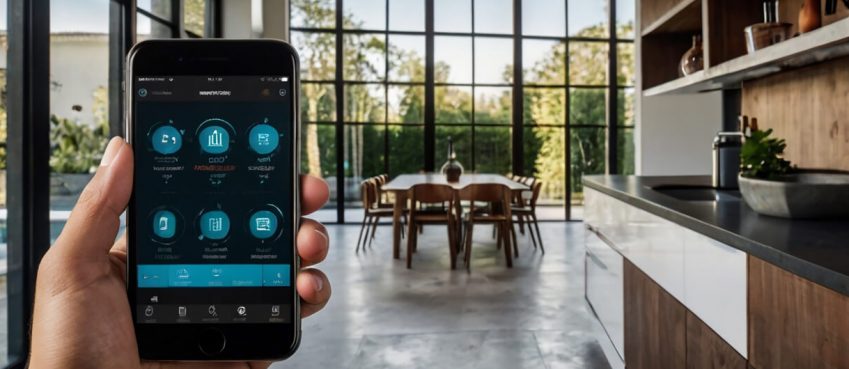
One of the most popular pastime activities is streaming shows and movies on various platforms. However, as much as it is fun, streaming comes with its own set of challenges. For example, some content might be unavailable in your country. Additionally, some services are region-locked, so accessing them is impossible. But to solve these problems, have you ever considered streaming with a VPN?
A virtual private network can help you avoid annoying restrictions and give you access to a plethora of new content. Additionally, it can fix performance-related issues while watching movies and shows.
But how does streaming with a VPN work? And how can you benefit from using a virtual private network? In this article, we’ll dive deep and answer the most important questions. Plus, we’ll recommend some of the best streaming VPNs and show you how to set them up.
What is A VPN, and How Does It Work?
According to tech experts at CoolTechZone, a virtual private network is your main tool for anonymizing your traffic. Its main priority is to keep you secure and the information about you confidential. It does so by using a sophisticated cipher, which is almost impossible to crack.
Apart from encrypting your data, a VPN can hide important information, such as your IP address and your actual whereabouts. That allows you to bypass various restrictions and potentially gain access to more content.
Also read: The Five Best Free Cattle Record Keeping Apps & Software For Farmers/Ranchers/Cattle OwnersWhy Stream With A VPN?
Apart from staying safe and confidential online, a lot of people get virtual private networks for streaming purposes. The main reason is that a reliable VPN can bypass geo-blocks and give you access to more content. For example, Netflix, Disney+, Crunchyroll, and many different platforms have to restrict access to some shows and movies in certain regions. That is usually due to copyright laws and licensing agreements. Luckily, by switching your country to a VPN, you can gain entry to extensive content libraries and stream whatever your heart desires.
In addition, a VPN can help you unblock streaming services that are only available in specific regions. Without a VPN, watching shows and movies on BBC iPlayer, Hulu, or U-NOW is practically impossible. But by connecting to a server in the UK, for example, you can create an account on BBC and watch the best British shows.
A VPN can also prevent bandwidth throttling caused by the Internet Service Provider (ISP). They tamper with your internet flow and slow you down because streaming eats up quite a lot of data. Because a VPN can mask your activities online, your ISP won’t be able to see what you are up to. Hence, you won’t have to deal with slower speeds and lagging.
Top 3 Streaming VPNs
Below, you’ll find the best 3 VPNs that can certainly help you while streaming. All of these services are fast, reliable, and tested against geo-blocks.
- NordVPN. This provider has 5500+ servers in 60+ countries, so you’ll have plenty of content libraries to explore. Additionally, it offers NordLynx, the fastest tunneling protocol, which ensures top-tier speeds. Plus, you’ll get the SmartPlay feature for seamless streaming on big screens.
- Surfshark VPN. The service covers 100+ countries with 3200+ pieces of hardware, which is quite impressive. Lagging won’t be a problem with WireGuard tunneling protocol and Nexus technology. And if you need to bypass firewalls, use the Camouflage mode.
- ExpressVPN. This VPN has thousands of servers in 94+ globally. It easily bypasses blocks and ensures great speeds with Lightway tunneling protocol. Not to mention, it offers MediaStreamer, which lets you stream on smart TVs and streaming devices.
How to Choose A VPN for Streaming?
Don’t know how to choose a VPN for streaming? Here are the main things you should pay close attention to:
- Server locations. Choose a provider that has servers in various regions. That way, you’ll be able to unblock more content libraries and streaming services.
- Speeds. You don’t want face lagging and endless loading screens. So, look for a VPN that offers unlimited bandwidth and has servers optimized for streaming. Also, pick a VPN with swift tunneling protocols.
- Compatibility. Make sure that you’ll be able to use your VPN for streaming on a plethora of devices. This includes computers, smartphones, smart TVs, etc.
- Security & privacy. You shouldn’t sacrifice your safety for the sake of entertainment. Pick a streaming VPN with reliable encryption, a robust kill switch, IP & DNS leak protection, and a trustworthy privacy policy.
- Reputation. We do not recommend going off the beaten path. Get a VPN that has a good track record and positive user reviews.
How to Stream With A VPN?
Streaming with a VPN is super easy. Even if you’re not very tech-savvy, you should be able to use one in no time.
While the installation process might vary depending on your device, the general steps are quite similar on all gadgets. So, here’s how you do it:
- Choose a reputable VPN that is known for excellent geo-block bypassing capabilities.
- Download the application from an app store or the VPN provider’s website. Then finish up the installation process.
- Sign in and connect to a server. For example, you can connect to servers in Japan to get more anime on Netflix.
- Launch the streaming service. Get a subscription and create an account if you need to.
- Now you can start streaming whatever you want!
If you experience any issues while streaming, you can try connecting to a different server or contacting the VPN provider’s support team for assistance.
Wrap up
Overall, streaming with a VPN has loads of benefits. A virtual private network will give you access to loads of new content and streaming platforms. Not to mention it will deal with bandwidth throttling and security concerns. Remember, you can only achieve this with a reputable VPN provider. So, choose the best virtual private network and stream as much as you want!
Top 10 News
-
01
Top 10 Deep Learning Multimodal Models & Their Uses
Tuesday August 12, 2025
-
02
10 Google AI Mode Facts That Every SEOs Should Know (And Wha...
Friday July 4, 2025
-
03
Top 10 visionOS 26 Features & Announcement (With Video)
Thursday June 12, 2025
-
04
Top 10 Veo 3 AI Video Generators in 2025 (Compared & Te...
Tuesday June 10, 2025
-
05
Top 10 AI GPUs That Can Increase Work Productivity By 30% (W...
Wednesday May 28, 2025
-
06
[10 BEST] AI Influencer Generator Apps Trending Right Now
Monday March 17, 2025
-
07
The 10 Best Companies Providing Electric Fencing For Busines...
Tuesday March 11, 2025
-
08
Top 10 Social Security Fairness Act Benefits In 2025
Wednesday March 5, 2025
-
09
Top 10 AI Infrastructure Companies In The World
Tuesday February 11, 2025
-
10
What Are Top 10 Blood Thinners To Minimize Heart Disease?
Wednesday January 22, 2025







